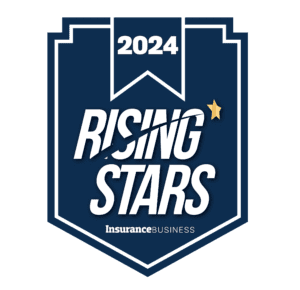Beware of Illegal Copay Maximizer/Accumulator Schemes: Pharmacy Benefits Managers HATE This One Little Trick!
As a patient with a chronic and incurable illness I have been through the nightmare of dealing with insurance covering the cost of my specialty medications.
What is a Copay Accumulator/Maximizer?
I went down a rabbit hole of discovering that Pharmacy Benefits Managers (PBMs) such as CVS Caremark have hatched clever schemes by using shady third party companies called Copay Accumulators and Copay Maximizers to exploit (now closed) loopholes on cost sharing regarding prescription medications. I am unsure of these companies' affiliation with the PBMs, but I suspect that they may be illicit shell companies of the PBMs and that fraud and HIPAA violations could also be at play.
These programs are designed so that you cannot meet your annual plan limits regardless of whether you or a third party has paid for your medications, since speciality medications may be listed on their Non-Essential Health Benefits (EHB) list. For more information on how these programs effect you, please see here: https://www.crohnscolitisfoundation.org/patientsandcaregivers/managing-the-cost-of-ibd/copay-accumulator-maximizer-programs
The PBMs and maximizer/accumulators will be pocketing any money that you or the manufacturer pays toward these medicines, while simultaneously ensuring that your deductible/OOPM is not met, increasing your financial burden. They hope that you will not utilize your insurance (that you are paying for), thereby maximizing their profits and reducing their "financial risk."
Why are these programs irrelvant now?
For the record, the loophole they exploit has now been closed pursuant to U.S. District Court for the District of Columbia Judge John D. Bates' ruling on Sept. 29, 2023 against the unlawful 2021 NBPP rule on cost sharing, allowing a previous NBPP 2020 rule to take effect. The 2021 NBP said plans were not required to apply manufacturer assistance toward beneficiaries’ annual cost sharing, leaving members on the hook for numerous specialty medications once assistance ran out, but the the 2020 NBPP stated that plans could exclude manufacturer assistance from counting toward patients’ out-of-pocket limit for only “specific prescription brand drugs that have an available and medically appropriate generic equivalent", excluding many costly specialty drugs that did not have a generic equivalent.
For more information, please see these links:
https://www.mintz.com/insights-center/viewpoints/2146/2023-10-09-court-strikes-down-hhs-rule-copay-accumulators https://www.mmitnetwork.com/aishealth/spotlight-on-market-access/copay-accumulator-lawsuit-comes-to-an-end-will-ruling-be-enforced-2/ https://www.thefdalawblog.com/wp-content/uploads/2022/09/HIV-AND-HEPATITIS-POLICY-INSTITUTE-Complaint.pdf
What can you do about it?
I am writing to inform anyone that has been fully enrolled, partially enrolled, or otherwise subjected to these accumulator and maximizer programs that you have rights under the Affordable Care Act (ACA).
You can call your PBM and request an "override" for the medication in which there is no generic equivalent, that you want to declare it as Essential Health Benefit (EHB, option 2) for yourself, and to have this override to be put on your account. This also means that any cost paid toward the medication, including copay assistance and patient out of pocket funds, must be counted toward your annual limits, so you can request any and all account balances and annual plan limits to be updated retroactively to reflect the status, which will persist for one calendar year.
Note they may try to deflect your EHB exception request by bringing up the copay accumulator/maximizer program, but insist that it is not the reason for your call. Note the date, time, and customer service representative (CSR) you are speaking with. Some may have no clue what you are talking about, so politely request them to transfer you to someone who can help you until the matter is resolved and that you urgently need your medication. If you continue to have trouble, inform them that you will file a complaint with both your state attorney general and the Federal Trade Commission (FTC) if the situation is not resolved in a timely manner.
Some CSRs may genuinely have no clue what you are talking about, but others WILL play dumb and refuse to even repeat the phrase "Essential Health Benefit (EHB)", likely due to instructions or scripts they are using. One CSR thought that they put me on hold, but I could hear the full conversation between two of them, in which they giggled and mocked me, called me "off the wall," and even knew full well what an EHB was. Be persistent and you will get your medicine!
submitted by /u/SealedServant
[comments]





